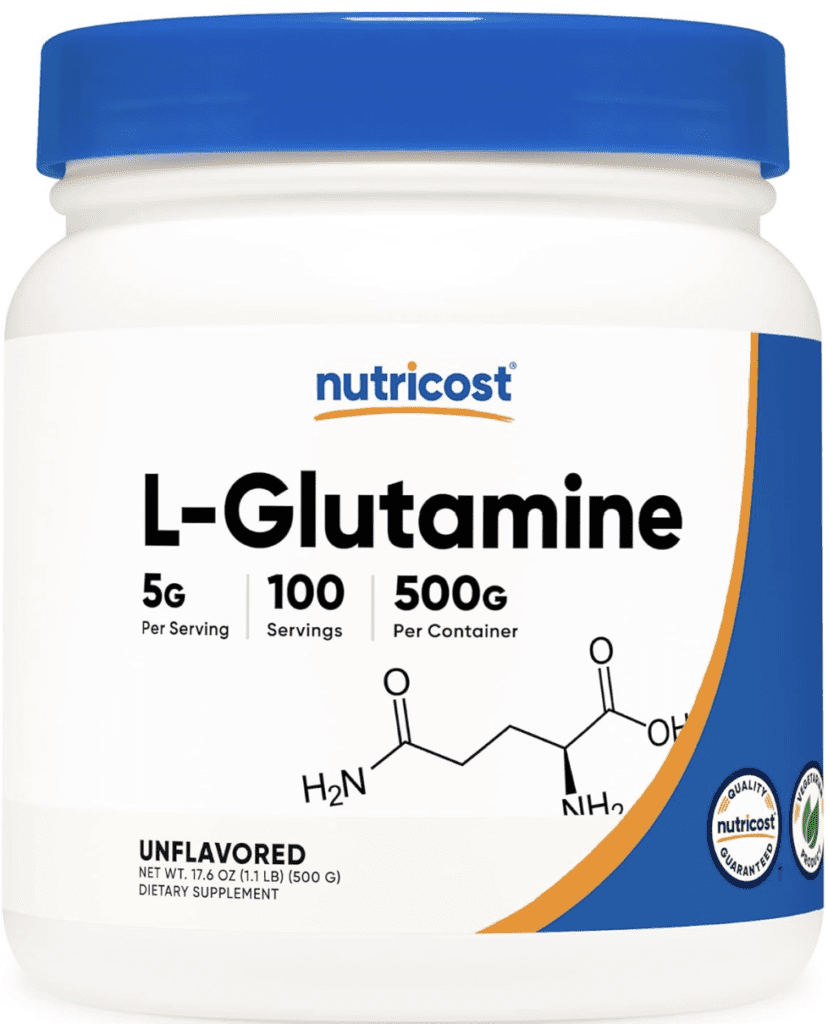Which Foods Contain Glutamine?
So, you’ve cranked out another epic workout and now you’re eyeing your protein sources like a lion sizing up its prey. Well, if you’re looking to harness the power of glutamine—an amino acid that can turbocharge your recovery—you’re in luck. This muscle-loving nutrient is abundantly found in some of your favorite high-protein foods. Let’s take a culinary journey through the meaty, cheesy, and bean-y world of glutamine-rich eats.
High-Protein Heavyweights: Where Glutamine Reigns Supreme
1. Beef: The Powerhouse Protein
Ah, beef. The king of meats. Packed not only with protein but also a hefty dose of glutamine, this red meat is your ticket to faster recovery and muscle repair.
- Best Cuts: Opt for lean cuts like sirloin or tenderloin to keep it healthy yet high in glutamine.
- Cooking Tip: Grill, broil, or stir-fry to preserve those precious amino acids. Avoid overcooking, which can break down nutrients.
2. Chicken: The Lean Machine
Chicken breast is a staple in any fitness buff’s diet, and for good reason. It’s lean, versatile, and loaded with glutamine.
- Prep Perfection: Whether you’re baking, grilling, or tossing it into a salad, chicken breast delivers a solid glutamine punch without the extra fat.
- Recipe Idea: Try a grilled chicken and quinoa bowl with a side of steamed veggies for a glutamine-packed meal.
3. Fish: The Omega-3 and Glutamine Combo
Fish, like salmon and tuna, not only provides a good dose of glutamine but also brings heart-healthy omega-3 fatty acids to the table.
- Top Picks: Go for fatty fish like salmon, mackerel, or sardines.
- Serving Suggestion: A simple baked salmon with a sprinkle of herbs and a squeeze of lemon keeps it tasty and nutritious.
4. Eggs: The Versatile Protein Source
From breakfast scrambles to post-workout omelets, eggs are a fantastic source of both protein and glutamine.
- Cooking Hacks: Boil, scramble, poach, or make them into an omelet—the options are endless.
- Pro Tip: Don’t skip the yolk; it’s where many of the nutrients, including glutamine, are concentrated.
5. Dairy Products: Milk, Cheese, and Yogurt
Dairy lovers, rejoice! Milk, cheese, and yogurt are all rich in glutamine and perfect for a quick protein boost.
- Top Choices: Greek yogurt, cottage cheese, and low-fat milk are all excellent options.
- Snack Attack: A bowl of Greek yogurt with a handful of nuts and berries makes a perfect mid-day snack packed with glutamine.
6. Beans: The Plant-Based Powerhouses
For the plant-based crowd, beans are an excellent source of glutamine. Black beans, lentils, and chickpeas are just a few examples.
- Preparation Tips: Cook them up in soups, stews, or salads for a hearty, glutamine-rich meal.
- Flavor Boost: Season with spices like cumin, paprika, and garlic to elevate your bean dishes.
Quick Reference: Glutamine-Rich Foods
Here’s a handy table to keep your glutamine intake on point:
| Food | Glutamine Content | Best Way to Enjoy |
|---|---|---|
| Beef | High | Grilled or broiled |
| Chicken | High | Baked, grilled, or stir-fried |
| Fish | Moderate | Baked or grilled |
| Eggs | Moderate | Boiled, scrambled, or poached |
| Dairy | Moderate | Greek yogurt, cottage cheese |
| Beans | Moderate | In soups, stews, or salads |
Final Thoughts
Incorporating glutamine-rich foods into your diet doesn’t have to be a chore. With a little creativity and some culinary flair, you can whip up meals that not only delight your taste buds but also aid in your muscle recovery and overall fitness goals.
Q&A: Your Glutamine Food Fix
Q1: Can I get enough glutamine from food alone? A1: While high-protein foods provide a good amount of glutamine, intense training might require additional supplementation for optimal recovery.
Q2: What’s the best time to eat these foods? A2: Spread them throughout your day—post-workout meals, snacks, and even dinner can all be great opportunities to boost your glutamine intake.
Q3: Are there plant-based sources of glutamine? A3: Absolutely! Beans, lentils, and chickpeas are excellent plant-based sources.
Q4: Can cooking methods affect glutamine content? A4: Yes, overcooking can degrade some of the nutrients. Opt for gentler cooking methods like steaming, grilling, or baking.
Q5: Is it necessary to combine these foods with other supplements? A5: Not necessarily, but combining them with a balanced diet and other supplements like protein powders can enhance your overall nutrition and recovery.
Ready to beef up your diet with some serious glutamine power? Whether you’re a carnivore, dairy devotee, or plant-based warrior, there’s a delicious way to fuel your recovery and get back to smashing those workouts. Bon appétit!

